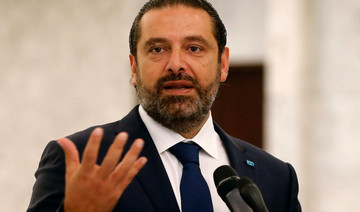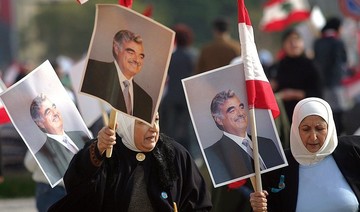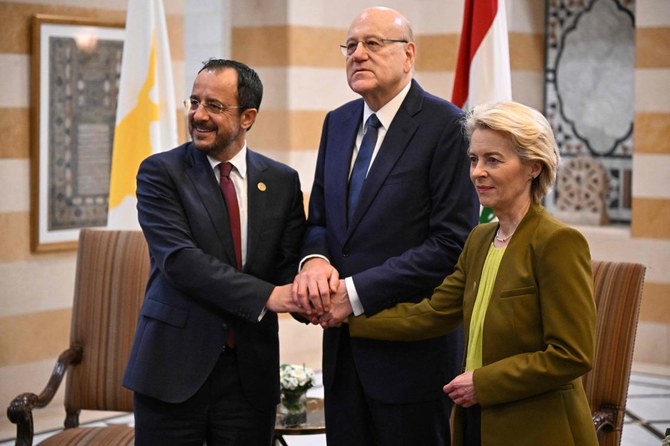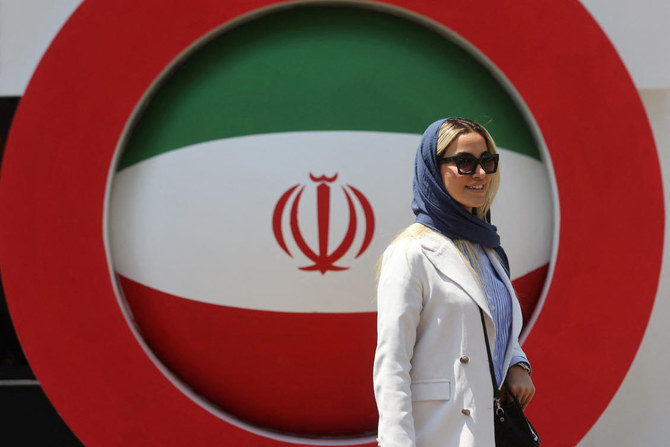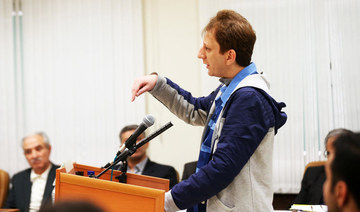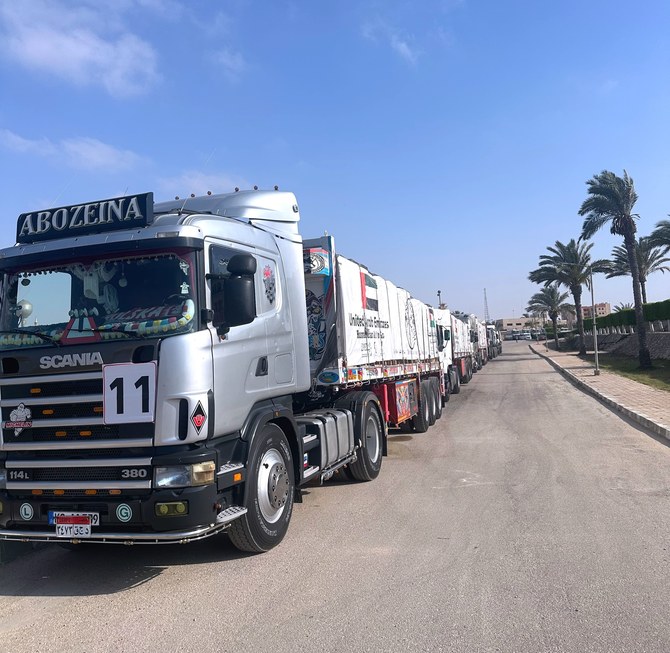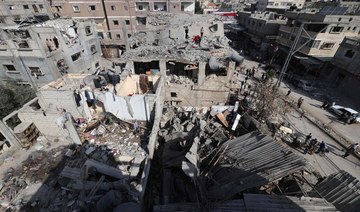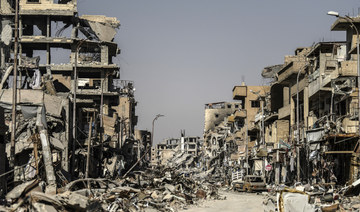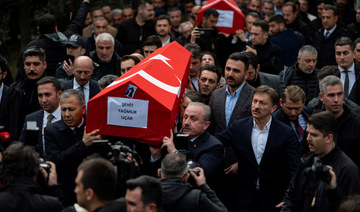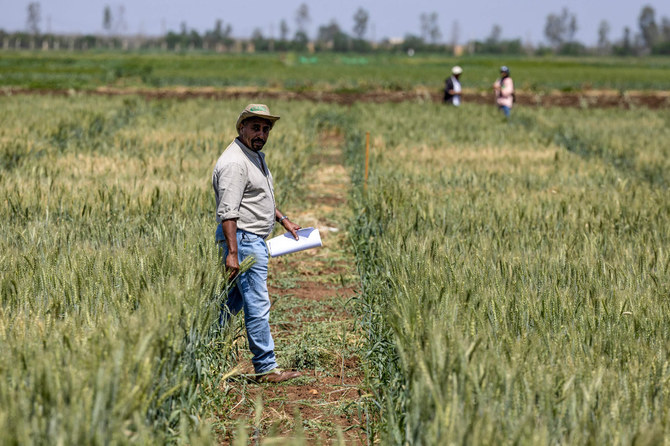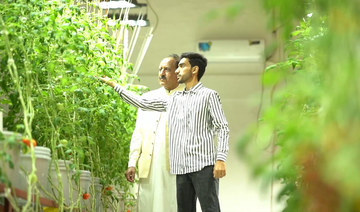The people of Lebanon watched the live broadcast on Tuesday of the beginning of the third phase of the special UN tribunal into the 2005 assassination of Lebanese former Prime Minister Rafik Hariri, held in The Hague.
Prime Minister Saad Hariri attended the trial, alongside relatives of the victims of the bombing that killed his father, minister Bassel Fliehan and 21 others.
The tribunal’s first-tier chamber in Leidschendam saw the unfolding of the last chance for the prosecution, the suspects’ defense team, and the affected families’ attorneys to submit their arguments. This process is expected to last between 10 days and two weeks.
Spokesperson of the Special Tribunal for Lebanon (STL), Wajed Ramadan, told Arab News that this phase might even continue for 21 days.
She said: “The prosecutor expects the prosecution to take two to three days to present its argument as it will seek to prove the strength of the evidence submitted against the four suspects, Salim Jamil Ayyash, Hassan Habib Merhi, Hussein Hassan Anisi and Assad Hassan Sabra, and that it is beyond a reasonable doubt.
“On the other hand, the defense attorneys appointed by STL’s defense office will recall in their arguments their claims that call into question the evidence presented by the prosecutor’s office during the trial’s previous years, especially the telecommunications data on which the indictment was based, and each of the suspects’ attorneys will be given one day to present their arguments.
“The affected families’ attorneys will present the extent of the harm they suffered as a result of the crime and will be allowed two and a half hours to present their cases.”
Ramadan added: “During the hearings, the prosecutor is given the opportunity to respond to the arguments, and the prosecution as well as the attorneys of the affected families and the suspects will be given the opportunity to respond to the prosecutor.
“At the end of these hearings, the tribunal’s judges will be isolated for consideration, and this may continue until after the end of this year because they have to review thousands of pages of documents before issuing their verdict.”
The tribunal canceled the trial of the Hezbollah military leader, Mustafa Badreddine, who was among the five people accused in the indictments, after he was killed in Syria. His name, however, continues to be repeated during the trial’s proceedings and in some of the testimonies as one of those who planned the stalking of Hariri and then carried out the assassination.
The prosecution team said that Badreddine was a senior official in Hezbollah, with military experience that qualified him to lead Hezbollah’s forces in Syria and manifested in the way he carried out the assassination of Hariri, pointing out that “Badreddine is the mastermind behind the assassination.”
The prosecution also highlighted that “Salim Ayyash led a six-person assassination unit targeting Rafik Hariri” and that “the evidence condemning the suspects is stark.” It has argued that “the Syrian regime is at the heart of the plot to assassinate Rafik Hariri,” pointing out that the “green network” (the telecommunications network) that led the assassination, is affiliated with Hezbollah. The prosecution stressed that “the evidence condemning the suspects accused of assassinating Rafik Hariri is stark,” emphasizing that the explosives used were “intended for military use.”
The prosecutor said: “The evidence proved convincing, strong and objective through the phone calls and their amount. In addition to that, the suspects’ phones stopped operating at the same time, which shows that they planned to carry out the crime.”
The attorney of the affected families said: “The assassination took place in an atmosphere characterized by a refusal of Syrian presence in Lebanon.”
Later, Saad Hariri described the first hearing as a difficult day for him, as the son of Rafik Hariri, and a difficult day for Lebanon.
He said: “Rafik Hariri and all the martyrs of March 14 have given their lives to protect Lebanon and not for its destruction. We have, therefore, demanded from the beginning justice and the truth, which we believe protect Lebanon. We never resorted to revenge because Rafik Hariri was never a man who would seek revenge but a man of justice, and we are following in his footsteps.”
Hariri added: “With time, people become calmer, and when they see the facts, they think more calmly. For me, the most important thing is Lebanon, and as the martyred prime minister always said, no one is greater than this country, and this is our real policy.”
He hoped that those who committed the crime would pay for it sooner or later and said: “We want to protect Lebanon.”
When asked about the prosecution’s claim that Hezbollah or one of its leaders had made the decision to assassinate his father, Hariri replied: “I do not know what the final decision will be. Let’s wait. At the end, we live together in the same country and want to live together for the benefit of this country. A man in my position today must put his emotions aside.”
Ramadan explained that the five judges would need so much time to consider the evidence before coming to a verdict because they have to review 3,128 pages of evidence submitted by the three legal teams, including details of the communications networks used by the suspects, in addition to the testimony of 307 witnesses summoned by the prosecution, the defense and the affected families’ attorneys.
She said: “The court is due to move to its fourth phase, which is intended for pronouncing verdict in a public session, followed by another public session in which the sentence is determined for every suspect if found guilty.”
“After that there is a 30-day time limit for the defense team to appeal to the second-tier chamber without passing the pre-trial judge. Meanwhile, the tribunal asks the Lebanese authorities to extradite the people it considers guilty of involvement in the crime, and this is the fifth phase.”
Ramadan highlighted that during every phase of the trial, the Lebanese state was obliged to search for the four suspects and hand them over to the tribunal.
“Every month, the Lebanese authorities sent a report to STL’s president of its ongoing efforts in searching for the suspects,” she said.




